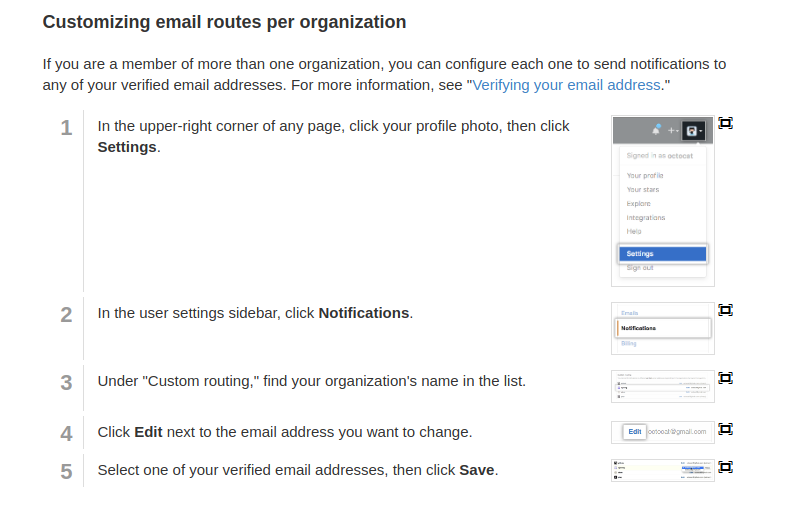This totally happened, y'all can stop +1ing this now. GitHub Blog post. Direct link to settings where you can set this.
#Per-organization / per-repo email overrides - A feature suggestion
Here the concepts "organization" and "user" are interchangeable, I'm talking about an entity that owns a repo, whether it is jQuery or John Resig. I'll stick to using organization as it best represents my original use-case.
##TL;DR
I want to get notifications from my work organization in my work email account, not my personal one. Github should provide an interface for this that isn't "setup forwarding in your personal email".
##The Situation
I use Github for personal projects and as part of a work organization. Currently Github sends all my notifications into a single inbox - my personal one.
##The Problem
I don't want everything to go to my personal email. I want notifications on my work projects to go to my work email and notifications on my personal projects to go to my personal email. Optionally repeat for any other hypothetical organization I might be a member of / user or repo I interact with.
##The Workaround
I can setup forwarding rules in my personal email based off the List-ID header (As told to the masses in this blog post, under "Filter Notifications by Repository or User" but this feels clunky, as though it should be managed as part of Github.
##The Solution
Create an option that allows me to override the email that my notifications should be sent to on a per organization / repo basis.
Github already knows what organization and repo a notification relates to as it sets the List-ID header, changing the from header based off these details that are already exposed should be pretty simple. I already specify the emails addresses I use at https://github.com/account/email. Perhaps an option on there for "receives notifications from: default | organization | organization/repo". Later per-email address notification settings could be added on https://github.com/account/notifications.
##Thoughts?

This is exactly my use case